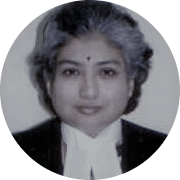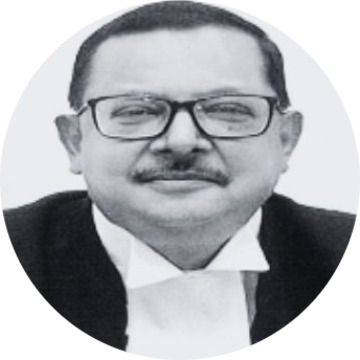Early Release of Bilkis Bano Gangrape Convicts
Bilkis Yakub Rasool v Union of India
Citation: 2024 INSC 24
The Supreme Court held that Gujarat government was the incorrect authority to grant remission to 11 men convicted of gangrape in the Bilkis Bano case.
Decided
Parties
Petitioner: Subhashini Ali; Bilkis Bano; Roop Rekha Verma; Revati Laul
Lawyers: Advocate Shobha Gupta; Advocate Aparna Bhat; Senior Advocate Indira Jaising; Senior Advocate Vrinda Grover; Advocate Nizam Pasha
Respondent: State of Gujarat
Lawyers: S.V. Raju (Additional Solicitor General); Senior Advocate Sonia Mathur; Senior Advocate Sidharth Luthra; Senior Advocate Rishi Malhotra
Case Details
Case Number: W.P. (Crl) 491/2022
Next Hearing: January 8, 2024
Last Updated: September 27, 2024
TAGS: Bilkis Bano, Criminal Law, Gujarat Riots, Remission
Key Issues
Whether the writ petition by Bilkis Bano was maintainable?
Whether the Public Interest Litigations filed by third-parties against the remission were maintainable?
Whether the Gujarat government was the appropriate government for considering remission?
Whether the remission granted to the 11 convicts was per law?
Case Description
At the height of the infamous Gujarat Riots in February 2002, Ms. Bilkis Bano and her family fled from their home in Randhikpur village. On March 3rd, 2002, they reached Chappawrwad village but were ambushed by an armed mob. The men gangraped Ms. Bano and, reportedly, murdered seven members of her family including her infant daughter. She approached the local police to file a complaint. However, the police initially refused to lodge an FIR. When they finally deigned to do so, the police omitted several important details including the names of many of the assailants.
In December 2003, Ms. Bano approached the Supreme Court with the aid of the National Human Rights Commission. The SC ordered the Central Bureau of Investigation (CBI) to investigate Ms. Bano’s allegations. The trial initially began in January 2004 at a Trial Court in Ahmedabad. However, the SC transferred the case to a special CBI Court in Bombay after Ms. Bano submitted that she was receiving death threats and was concerned that she would not receive a fair trial in Gujarat. In 2008, the Special Court convicted 13 of the 20 people accused. 11 convicts received life sentences and 7 were acquitted for lack of evidence. On appeal, the Bombay High Court upheld the conviction of all the accused in May 2017.
In March 2022, Mr. Radheshyam Bhagwandas Shah (one of the convicts) approached the SC seeking a remission of his sentence which would result in an early release. He claimed that the Gujarat State Government had an obligation to consider his early release as per the states’ 1992 remission policy. State governments may enact remission policies to allow individuals or certain classes of individuals to file applications for early release from prison.
The State of Gujarat opposed the petition, claiming Mr. Shah was convicted by the Bombay HC. Hence, the Maharashtra government should make any decisions regarding remission. In May 2022, the Bench comprising Justices A. Rastogi and V. Nath directed the Gujarat government to consider his remission application in accordance with the 1992 policy.
In August 15th, 2022, during Independence Day celebrations, the Gujarat government accepted the remission applications for all 11 convicts who were sentenced to life imprisonment. The Gujarat government stated that they were granted early release in accordance with the 1992 policy, citing the ‘good conduct’ of the convicts while imprisoned. Their release was promptly met with widespread criticism and protest from journalists, civil society organisations and citizens. Critics have noted that the convicts did not complete 14 years in prison at the time of their release—a requirement for early release under the 1992 policy. Further, despite the claims of ‘good conduct’, nine of the convicts reportedly violated their parole and one was charged with molestation while he was out on parole.
Later that same month, Bilkis Bano, Communist Party (Marxist) leader Subhashini Ali challenged the Gujarat government’s decision. Professor Roop Rekha Verma and journalist Revati Laul are co-petitioners as well. They claim that the Gujarat government’s decision to release 11 convicts at once was ‘premature’ and ‘mechanical’. Each individual application has to considered separately instead of releasing all 11 convicts ‘en masse’. They also claim the Gujarat government should have consulted the Union before remitting the convicts’ sentences as they were convicted by a CBI Special Court, which is a central agency. Further, the petitioners claim that the crimes were so heinous that no ‘right-thinking’ public authority could grant remission.
The case was heard by a Bench comprising Justices K.M. Joseph and B.V. Nagarathna on May 23rd, 2023. The Bench served notice to all the parties and listed the case for hearing on April 18th, 2023.
On August 7th, 2023, a Bench comprising Justices B.V. Nagarathna and Ujjal Bhuyan started hearing the challenge
On October 12th, 2023, the Bench reserved judgement after 11 days of regular hearings.
On January 8th, 2024, the Bench held that the remission granted to the 11 convicts was illegal. It stated that the Gujarat government was the incompetent authority to consider remission and that it was the Maharashtra government who could do so.
On September 26th, 2024, the Bench dismissed a review petition by the Gujarat government which sought the removal of remarks against the Gujarat government. Some of the remarks stated that the government had “abused its discretion” and “acted in tandem” with the convicts. It also stated that the government tried to “usurp” the authority of the Maharashtra government. In a four page order, the Bench stated that there was no apparent error which would warrant a reconsideration of the judgement.


